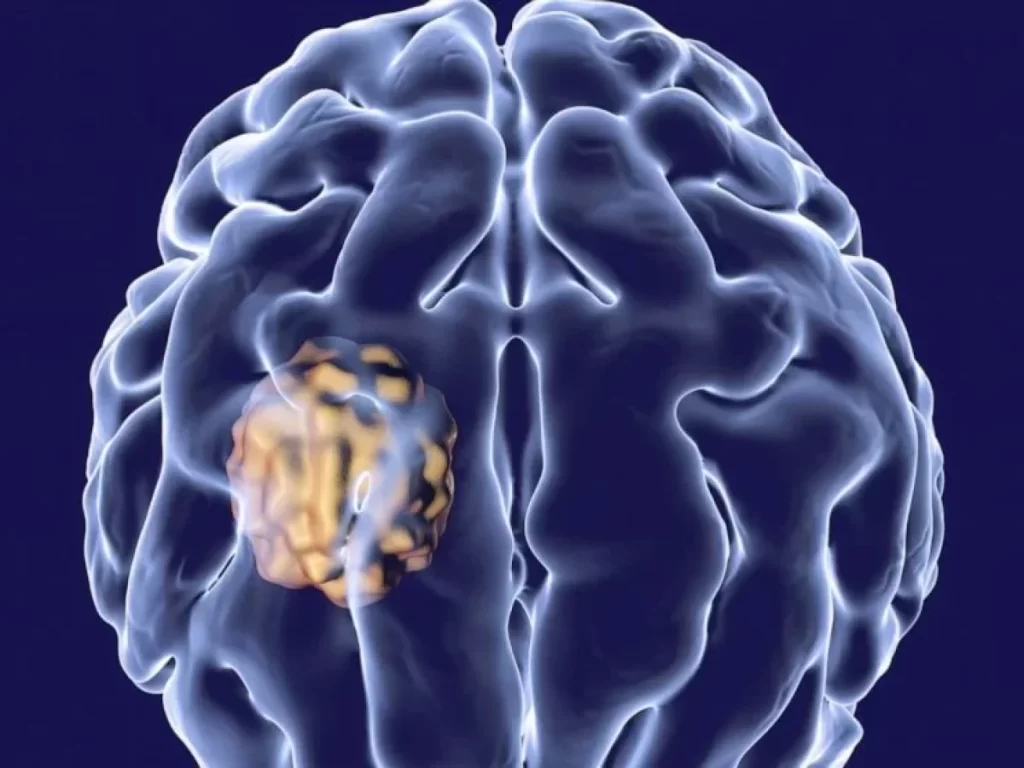What is a brain abscess?
Brain abscess or cerebral abscess is an abscess caused by an infection especially caused by bacteria in the tissue of the brain. Brain abscess is an inflammation and collection of infected material that is entering the brain from local infected areas such as ear infection, dental abscess, infection from paranasal sinuses, infection from the mastoid cells in the temporal bone or from epidural abscess or infection coming from remote parts of the body such as lungs, heart, kidney, or infection sources within the brain tissue.
The brain is a special organ which is protected from infection by bacteria and is protected by the skull, the meninges (layers surrounding the brain), the immune system and the highly regulated barrier between the bloodstream and the brain.
In some conditions due to any defect in these barriers, the bacteria enter the brain cause localized infection and form abscesses.
Who is more prone to brain abscess?
Brain abscess occurs more commonly in males than in females.
Young children and infants are more prone to develop brain abscesses because of more occurrence of meningitis in small children.
What are the causes of brain abscesses?
The following are the predisposing factors
-Dental infections by aerobic and anaerobic streptococci.
-Ear infections such as mastoiditis by Haemophilus bacteria.
-infection of the heart that is endocarditis by staphylococcus aureus.
-Liver abscess by Klebsiella pneumonia.
-In any penetrating trauma infection by Enterobacteriaceae, staphylococcus aureus.
Organisms that cause infection and lead to the formation of abscesses are as follows
-Staphylococcus aureus.
-Prevotella and Mycobacterium species.
-Pseudomonas species.
-Anaerobes especially Veillonella and Eubacterium
-Enterobacteriaceae especially Klebsiella pneumonia, Escherichia coli and Proteus species.
Less common organisms causing brain abscesses are as follows
-Actinomyces.
-Nocardia asteroids.
-Helminthes such as Taenia solium.
-T gondii.
-Actinobacillus actinomycetemcomitans.
-Haemophilus aphrophilus.
-Other Enterobacteriaceae are actinobacillus, actinomycetemcomitans, and Salmonella species.
-Nocardia asteroids.
-Fungi such as Aspergillus, Candida, and Cryptococcus.
-Neisseria meningitidis.
-H influenza.
What are the symptoms of brain abscess?
There are changes in mental status and are as follows
-Confusion.
-Drowsiness.
-Inattention.
-Slow in thought process.
-Irritability.
-Decreased responsiveness.
-Eventually, a coma will develop.
Other symptoms are as follows
-Decreased movement.
-Headache.
-Fever and chills.
-There are difficulties in languages.
-Loss of coordination occurs.
-Loss of muscle function, especially on one side.
-Seizures can occur.
-Stiffness in the neck.
-Vision changes occur.
-Vomiting.
-Decreased speech.
Can brain abscesses be cured?
It can be treated with antibiotics, as antibiotics help in treating the underlying infection that may have been the cause of brain abscess.
Can you die from a brain abscess?
If a brain abscess is left untreated, it can cause permanent brain damage and can be fatal.
What are the investigations for brain abscesses?
-Blood culture.
-Complete blood count.
-Chest X-ray.
-A CT scan of the brain is done to find the location of the abscess.
-Lumbar puncture is done and then CSF (cerebrospinal fluid) is cultured and the type of bacteria involved in infection is found.
-EEG
-Magnetic resonance imaging of the brain is done.
-Testing of antibodies in blood.
What are the complications of brain abscess?
-Seizures.
-Brain damage.
-Meningitis that is severe and life-threatening.
-Recurrence of infection.
Homoeopathic treatment for brain abscesses?
-arnica montana
-crotalus horridus
-iodum
-lachesis


 If you are unsatisfied with our treatment and do not want to continue the medicines you can ask for refund within 24 hours of making the payment.
If you are unsatisfied with our treatment and do not want to continue the medicines you can ask for refund within 24 hours of making the payment.